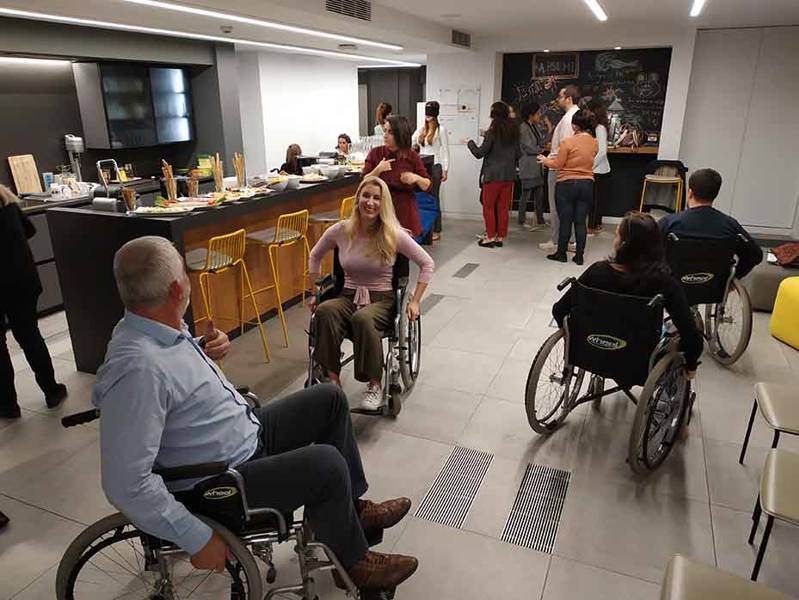
An Afternoon with the Association of Social Responsibility for Children and Youth (SKEP) at the SNF
Vangelis, Konstantinos, Panagiotis, Ileana, and Thalia from the Association of Social Responsibility for Children and Youth (SKEP), a Stavros Niarchos Foundation (SNF) grantee, visited our offices last Friday to share their valuable knowledge and provide us with the opportunity to better understand what it’s like to live with a disability.
Living with a physical disability in Greece, everyday struggles, and proud achievements formed the core of our discussion with SKEP. Experiential exercises on the everyday obstacles and dangers a person with a disability has to overcome helped us gain understanding but also shed light on the impressive number of accomplishments and opportunities available. The day after, colleagues expressed their gratitude for the experience, which sparked a fruitful dialogue about what can be improved in Greek society. We appreciate suggestions from our SKEP partners on how to further improve accessibility for people with disabilities to events organized by the SNF such as the SNF Annual Conference. Our commitment to create infrastructure that will affect society at large and be accessible to all has been demonstrated through the world-class accessibility practices of the Stavros Niarchos Foundation Cultural Center. This experience with SKEP reaffirmed our resolve in this commitment.
SKEP was founded in 2008 with a mission of promoting social integration and equal opportunity for young people with disabilities. SKEP implements two types of programs: awareness and education programs in schools and experiential programs for the wider public like the one shared with our office. SNF has been a longstanding supporter of SKEP's awareness and education efforts. We provided multi-year support for the “Fingerprints” exhibition and accompanying educational programs, with emphasis on their accessibility to children from underprivileged areas of Attica. The exhibition presented paintings created by children from social welfare institutions in collaboration with children from both public and private schools. This exhibition brought together and promoted understanding between children from different backgrounds, just the kind of shared experience that is so necessary to social integration.